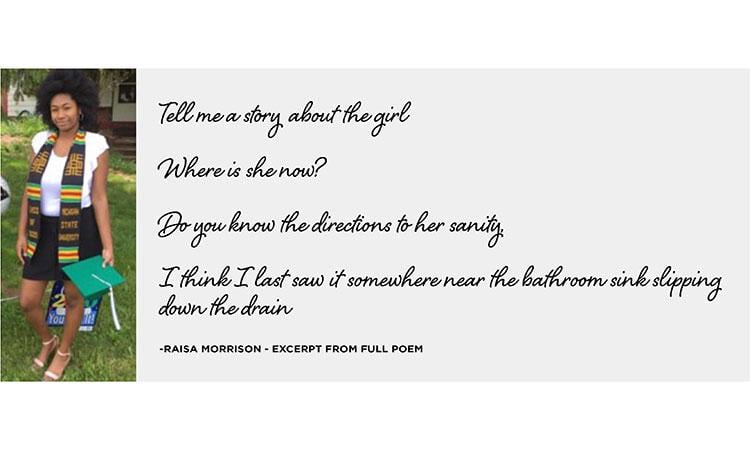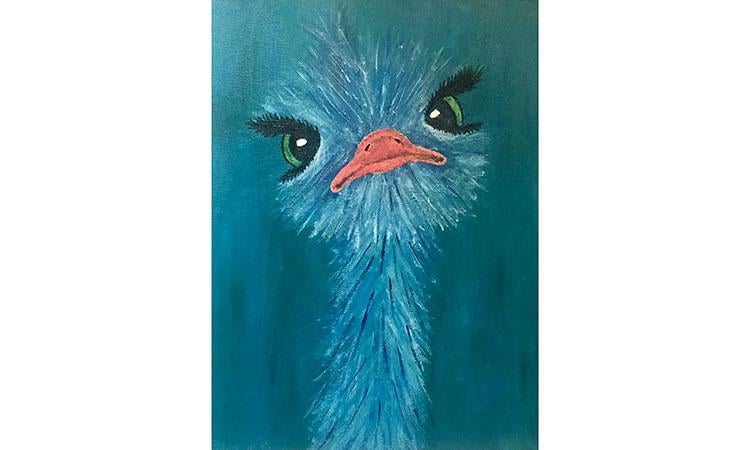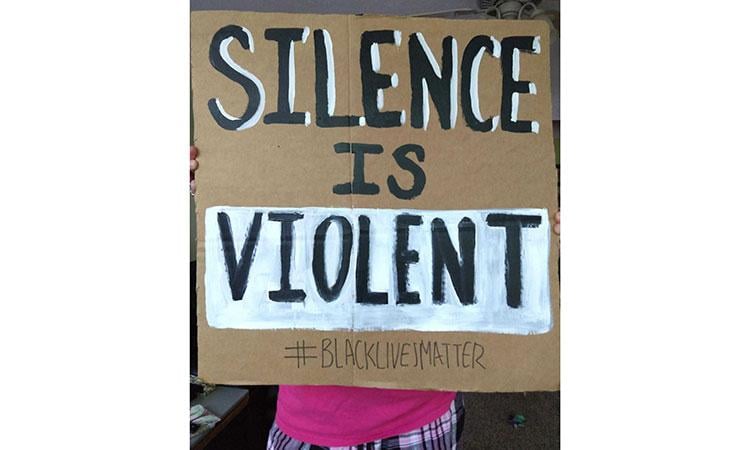“At some point, each student hit a low and the next day, they turned to art,” says Natalie Phillips, associate professor of English and co-principal investigator on the grant. “I did not expect this at all, and it made me so excited to see art helping them get through this difficult time. I thought, if this helped students here, what about the larger community nationally or even internationally?”
Works gathered across the globe will be featured in online and physical exhibits in Lansing, and in satellite exhibits at the University of Buffalo, Washington University in St. Louis and the U.S. Air Force Academy. The professors hope to set a new standard for accessibility in museums, universities and online resources by offering Braille, American Sign Language, audio guided tours and adjusted sensory environments.
Over the next three years, Phillips, who is also the co-director of the Digital Humanities and Literary Cognition Lab; Nancy DeJoy, associate professor in the Department of Writing, Rhetoric and American Cultures; and Julian Chambliss, professor of English and co-director of the DHLC lab, will work with community partners to find and collect creative expressions from people who have been hardest hit during the pandemic. “COVID-19 isn’t treating everyone equally,” DeJoy says. “Being stuck at home is not the same for everyone.”
Once the creative pieces have been collected, Chambliss, who is also the Val Berryman Curator of History at the MSU Museum, will create an online experience that complements the physical exhibit to preserve the art digitally.
“This project provided a unique opportunity in cataloguing and preserving the creative submissions for the future,” Chambliss says. “Hopefully, people will see a story in the exhibit that reflects their trauma during the pandemic in a meaningful way.”
The faculty took inspiration from this last stanza of a poem written by Raisa Morrison, a student in Phillips’s Literature and Society class, who has since graduated with a degree in English:
Tell me about them all
Collect their stories for me and sprinkle them in my coffee
So, I can stay awake during the nightly news
Turn off the timer, turn off the television, turn on the truth.
Tell me a story
“Poetry was a great way to express my emotions while capturing what was occurring at that time,” Morrison says. “Prior to COVID-19, I hadn’t really written anything creative, let alone poetry. However, something about the lack of in-person social interaction inspired me to create.”
The project aims to reframe the understanding of how people from every walk of life have found the courage to stand up, use their creativity and face societal challenges.
“We want to feature work from people who are feeling the effects of the pandemic disproportionately and are using creativity to respond in a variety of ways,” DeJoy says. “We must make public spaces for these voices if we are to tell the full story of the pandemic and the inequities and structures of social injustice it exposes.”
This grant builds on the Mellon Foundation’s recent support of MSU humanities-focused initiatives such as the Less Commonly Taught Languages Consortium, HuMetricsHSS (Humane Metrics for the Humanities and Social Sciences), Enslaved: People of the Historic African Slave Trade, the Public Philosophy Journal, The Puerto Rico Disaster Archive, Ubuntu Dialogues and On These Grounds, a digital initiative to describe the history of enslavement found in archival materials at colleges and universities.
LEARN MORE about supporting the College of Arts & Letters by contacting Senior Director of Development Christine Radtke at radtkech@msu.edu or by calling (517) 432-6693.




